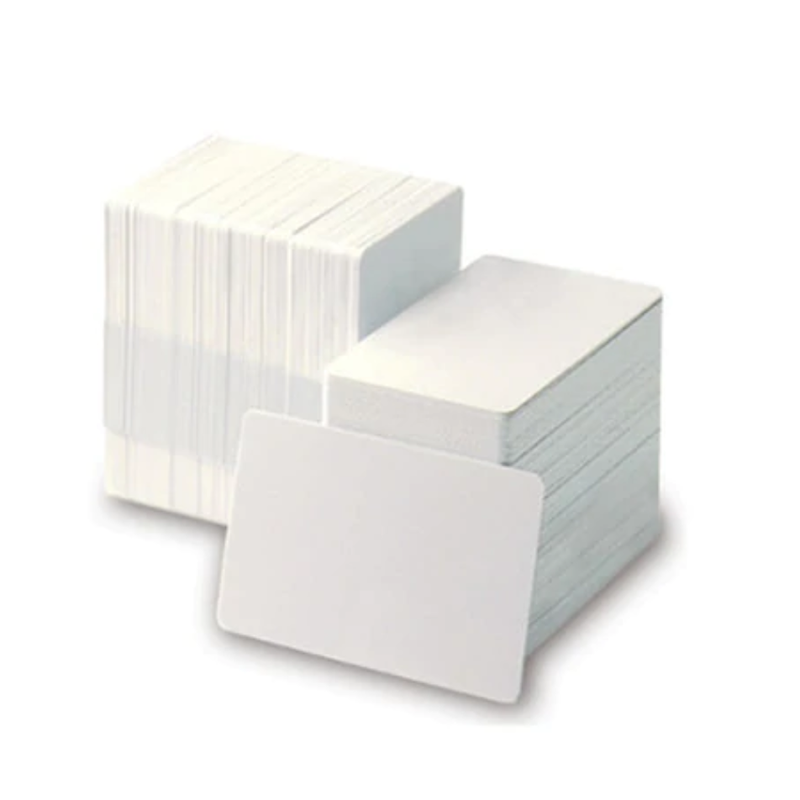
Why Choose a Plastic Card Supplier?
Plastic cards can be printed with digital photos, graphics, logos, text, and barcodes. They are also resistant to abrasion, UV light, and liquid chemicals. This makes them more durable than paper cards.
A plastic card supplier can print ID cards on-demand. This is more cost-effective than buying them from a service bureau.
Cost-effective
A plastic card supplier can offer an affordable alternative to a traditional printing service. The company can produce a single card or a large batch of cards to suit your needs. They can even print a hologram to provide additional security. In addition, they can help you select the right card design for your organization. They can also apply protective materials to the card to make them more resistant to fading, wear and tear, alteration, and duplication.
The price of a plastic ID card can vary significantly depending rfid card supplier on the card design and printing process. For example, some companies may use a YMCK ribbon for color printing while others will only require a half-panel color ribbon. The cost of the ribbon can be lowered by purchasing it in bulk, which will result in significant savings.
In addition to reducing costs, a plastic card supplier can also improve buyer relations by accommodating their preferred payment choice. They can also offer straight-through processing (STP), which eliminates manual touchpoints that are tied to reconciling payments and optimizes AR resource utilization.
A plastic card supplier can provide an end-to-end service that includes card manufacturing, personalization, and production of branded carriers and mailing packs. In addition, the company can also provide a range of value-add services, such as hologram overlays and laminate material.
Durable
Plastic cards are a crucial component of modern society, used for everything from credit and debit to IDs, access control and security. They are also a useful tool for direct marketing and promotional campaigns. For example, they are perfect for membership card mailers, product promotions, calendar mailers, service contact mailers, school fundraiser mailers or referral card mailers.
Durability is important for plastic cards because they must withstand the everyday wear and tear of use. This includes the ability to pass through a magnetic stripe or bar code reader, protection from image fading in sunlight and resistance to damage from chemicals and immersion in water. Card construction methods are also important, as they affect how durable the card is. Card companies like Starling Bank in the UK have been experimenting with greener alternatives to first-use PVC, including chlorine-free and biosourced materials.
Another key aspect of card durability is resistance to tampering and alteration. To protect against counterfeiters, many cards are constructed to contain holograms rfid card supplier and other security features. They are also made with a thicker material that is difficult to forge or reproduce.
A good plastic card supplier will provide you with a sample pack to give you an idea of how their products look and feel before you buy them. They should also be able to manufacture the cards as you need them. This will eliminate the extra costs of importing them from overseas and save you time due to shipping times, customs charges and different working weeks.
Easy to customize
Plastic cards are a great way to promote your business, products, and services. They are easy to customize and can be designed in a wide range of shapes, sizes, and materials. They also offer a greater level of durability than traditional paper cards. They are fade-resistant and water-resistant, which means they will last longer than a standard card. This helps ensure that your clients will be able to keep your contact information with them for a long time.
Smaller square and thin plastic business cards can benefit from a minimalist design that highlights the company name and contact information. You can also use frosted and clear plastic cards to create custom die-cut designs. Choose a font size that is large enough to be readable and avoid using white areas in your design, which will blend in with the material’s background. Frosted and clear plastic cards can be made to look like an object associated with your business, such as a viewfinder for photographers or a clean window for cleaning services.
ICMA offers several training and education programs for its members to help them stay current with the industry. The CITE (Courses on Innovative Technology) program provides advanced instruction in key card manufacturing topics and features self-tests at the end of each module. In addition, ICMA offers the ACE designation for card manufacturers and personalizers, which is widely recognized as an international benchmark of advanced knowledge of the industry. ICMA also maintains an official representation on ISO and ANSI standards committees, where it offers its perspective to the organizations setting these global industry standards.
Fast
Plastic card production is a fast-growing industry. Globally, over 35.4 billion cards are produced annually, spread across Government/health, Telephone, Financial, Retail/Gift and Gaming cards as well as “print on demand” greeting and loyalty card combinations. These cards typically need either personalization or variable data and must be printed legibly, accurately and securely to meet industry standards. To ensure that this information is readable at high speeds, the cards must be inspected and verified using high-speed reading systems such as Discovery READ&PRINT or SmartPQ.
Both of these systems are designed to verify a card’s integrity from print to finish, including the verification of scratch-off placements and the identification of chip/PIN numbers. They also offer reporting capabilities that track individual cards, bundles of cards and cases into pallets with parent-child relationships maintained in a database.
ICMA also supports its members through education, training and a comprehensive online resource for the card manufacturing industry. The Card Industry Training Education (CITE) program provides comprehensive instruction on key topics in the industry, such as card-based transactions, card manufacturing processes and materials, industry trade associations, basic concepts of machine-readable recording technologies and card personalization. The curriculum also includes self-tests at the end of each section.
In addition, ICMA offers two geographic-specific conferences each year that highlight regional trends and challenges in the card production industry. These one-and-a-half day events are geared to the technical and production staff of card manufacturers, personalizers and suppliers. They provide a valuable opportunity to network with fellow industry professionals, learn about new technology and discuss challenges facing the industry.

